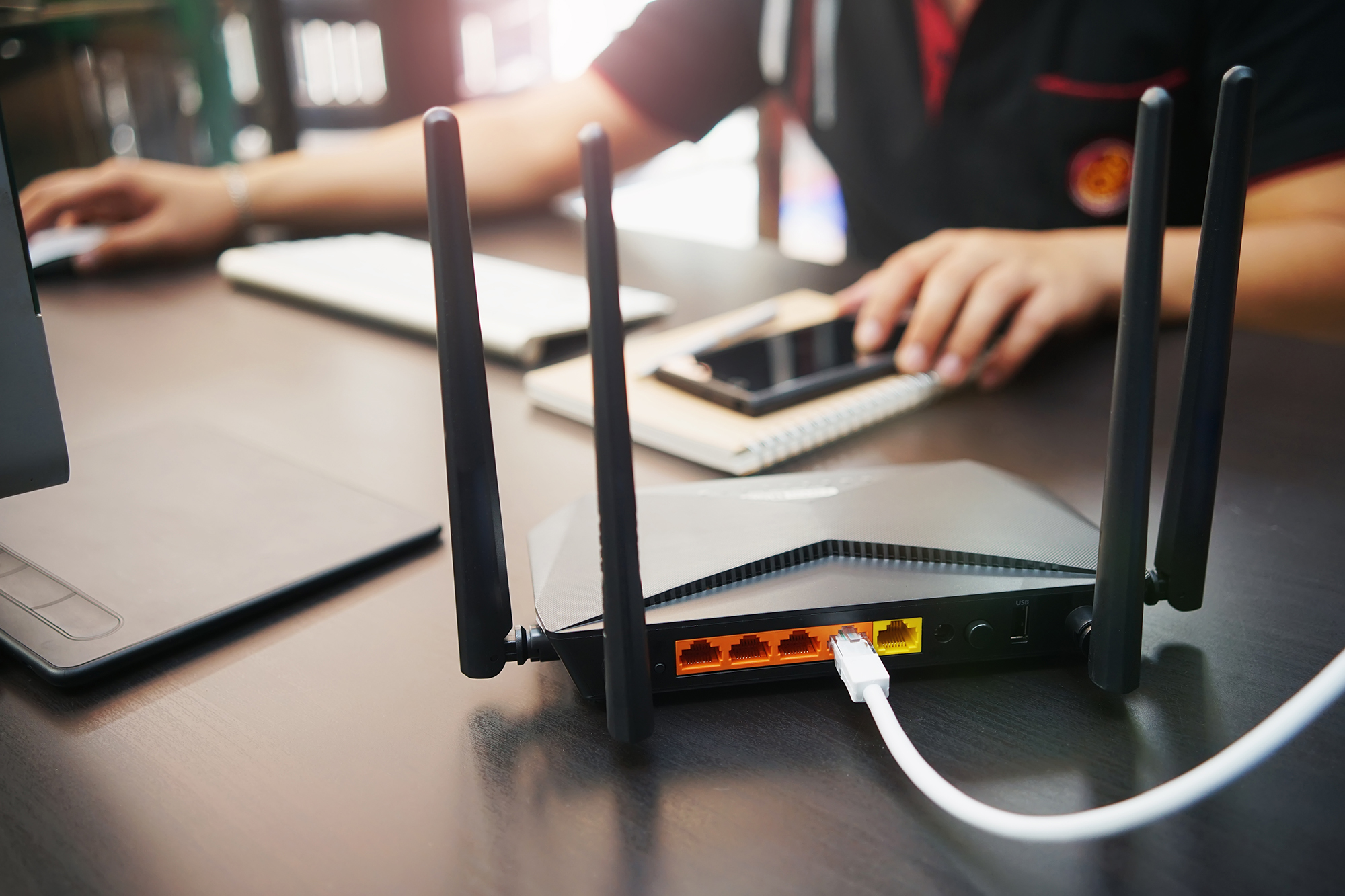
- Details
- By Chuck Hoskin Jr
Guest Opinion. In the modern world, high-speed internet access has become an essential utility, just like water, gas and electricity. All those living on the Cherokee Nation Reservation need the ability to participate in the digital economy. Many Americans now take for granted services like telehealth, remote work and access to the vast amount of information and resources for learning and communication online. Unfortunately, broadband access on tribal reservations has badly lagged behind the rest of the country.
Deputy Chief Bryan Warner and I have been working diligently on a long-term goal to ensure that all of our citizens, including those in our most rural communities in northeast Oklahoma, can still get the latest and greatest technology. It is part of our deep commitment to communities that have been ignored and neglected by other institutions, but that Cherokee Nation will never leave behind. Our 7,000-square-mile reservation includes many low-income, rural areas where our language and culture are thriving, but economic resources are hard to find.
That’s why we were so pleased that Cherokee Nation was awarded a $34 million federal grant through the U.S. Commerce Department’s Tribal Broadband Connectivity Program. The funding comes from the Bipartisan Infrastructure Law and will be used to install fiber optic lines and telecommunication infrastructure for high-speed internet service to reach rural households. More than 6,000 Cherokee households will soon be connected to their tribe, language, services, and family.
Cherokee Nation’s new grant dollars will allow us to construct more than 240 miles of fiber connectivity, including telecommunications towers in a number of Cherokee communities currently lacking broadband in Adair, Delaware, Mayes, Cherokee and Sequoyah counties. These communities are home to a high concentration of Cherokee speakers, so giving them better tools to communicate is also essential to our language revitalization efforts.
This is a generational opportunity. Access to broadband internet means that elders in rural areas will be able to stay in better contact with family no matter where they live, and younger people who want to stay in close-knit communities will find it easier to do that and still have opportunities to connect to the wider world.
We will soon begin the engineering and design process, and construction of this life-changing broadband network is expected to begin in 2023. This initiative is just the beginning. We plan to use the network built through the $34 million grant as a hub for future broadband expansion throughout the Cherokee Nation Reservation.

The digital divide that plagues Indian Country was keenly felt during the pandemic. We realized how essential access to affordable, reliable broadband was for the health of citizens, the education of our students and for our people to have access to remote jobs. We deployed nearly 11,000 mobile hotspots to Cherokee households lacking Internet access. The tribe also built more than 35 drive-up wi-fi locations in Cherokee communities across the reservation, allowing citizens without Internet access at home to connect while staying socially distanced.
Tribes like the Cherokee Nation are in the best position to know the needs of our communities. With federal dollars and Cherokee hard work and expertise, we are building the digital infrastructure to have a Cherokee Nation Reservation where both traditional culture and modern economic opportunities can thrive. Broadband access can be the bridge between our past and our future.
Chuck Hoskin, Jr. is the principal chief of the Cherokee Nation.
More Stories Like This
Superhuman. Should We Be Better Than We Are?Senator Ben Nighthorse Campbell Proved Representation Matters
The Lie We Keep Telling About Wounded Knee
Another Weapon of Mass Destruction
Colorado cannot heal until it confronts Sand Creek honestly
Help us defend tribal sovereignty.
At Native News Online, our mission is rooted in telling the stories that strengthen sovereignty and uplift Indigenous voices — not just at year’s end, but every single day.
Because of your generosity last year, we were able to keep our reporters on the ground in tribal communities, at national gatherings and in the halls of Congress — covering the issues that matter most to Indian Country: sovereignty, culture, education, health and economic opportunity.
That support sustained us through a tough year in 2025. Now, as we look to the year ahead, we need your help right now to ensure warrior journalism remains strong — reporting that defends tribal sovereignty, amplifies Native truth, and holds power accountable.
 The stakes couldn't be higher. Your support keeps Native voices heard, Native stories told and Native sovereignty defended.
The stakes couldn't be higher. Your support keeps Native voices heard, Native stories told and Native sovereignty defended.
Stand with Warrior Journalism today.
Levi Rickert (Potawatomi), Editor & Publisher
